News & Media
When the Village Sleeps: A conversation with Dr Sindiwe Magona
On 27 March 2024, the Chief Albert Luthuli Research Chair hosted a conversation with Dr Sindiwe Magona, a renowned South African writer, storyteller, motivational speaker and activist. The conversation centred on one of her most recent literary works, titled When the Village Sleeps, which was published in 2021. Lesego Linda Plank, a researcher at the Chief Albert Luthuli Research Chair, guided and led the conversation.
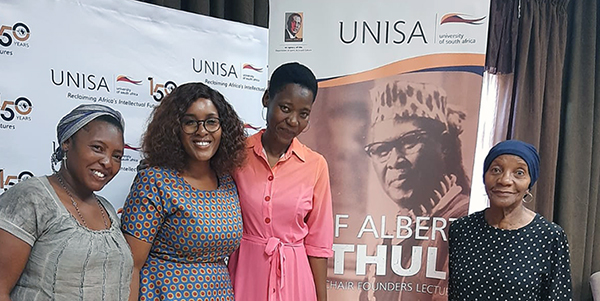
From right: Dr Sindiwe Magona, renowned author and star of the evening; Prof Puleng Segalo, incumbent of the Chief Albert Luthuli Research Chair; Lesego Linda Plank, Researcher: Chief Albert Luthuli Research Chair; and Lungile Magagula, Educator/Facilitator: Hope For Girls Foundation
Writing from a place of outrage
From the beginning of the conversation, Plank was curious about the source of inspiration for Magona's writing. In her resolute response, Magona disclosed that nothing truly inspires her to write, as she writes from a place of outrage, sadness and provocation. She added that she is constantly challenged by societal torments within South Africa, the African continent and globally – particularly for black children. Magona affirmed that she writes out of desperation of who we are, what we are and how we are as a nation.
Further in the conversation, Magona raised several pertinent issues:
- Every child born, is born ready to thrive, but black children, numerically speaking, lead the rest of the world in not thriving.
- There are always repercussions for children not thriving and hence we are finding ourselves in a dilapidated and precarious position as a country and as a continent.
- We cannot sit back and do nothing about what we see around us.
- We need to promote thriving, find ways of opening the eyes of children born into poverty, and show them that there are alternative choices and ways of living other than succumbing to poverty for the rest of their lives.
- Despite children dreaming big, they must know and see what they are seeking. This is because it is futile to encourage children to dream big, while they have not been shown 'the big' they have to dream of. We need to open the eyes of children born into nothingness, so that they know what it means to be something.
A book for everyone
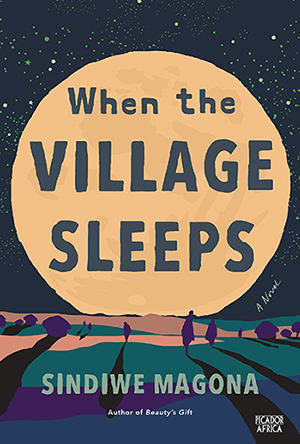 When the Village Sleeps is a multidisciplinary offering which explores sociological, political, philosophical, African spirituality, agricultural, psychological and developmental issues in South Africa. It is a book that should be read within and outside academic walls as it speaks to the everyday realities of young people and complexities of living precariously in the 'post'-apartheid South Africa. The book is a provocation to the African – yet universal – proverb "It takes a village to raise a child".
When the Village Sleeps is a multidisciplinary offering which explores sociological, political, philosophical, African spirituality, agricultural, psychological and developmental issues in South Africa. It is a book that should be read within and outside academic walls as it speaks to the everyday realities of young people and complexities of living precariously in the 'post'-apartheid South Africa. The book is a provocation to the African – yet universal – proverb "It takes a village to raise a child".
The characterisation in the book highlights the powerful voice and perseverance of women in black families and society. Magona emphasised the need to take control of our own lives and not relying solely on the government, as portrayed through the narratives of Khulu, Mandlakazi and Busi.
Magona further highlighted the importance of humanising one another and urged the audience to acknowledge their multifaceted natures. She challenges the pathologisation of mothers within many of our communities through one of the characters in the book named Phyllis. Given the societal perception and categorisation of mothers like Phyllis as ‘bad mothers’, we fail to see structural challenges that make it difficult for many mothers to offer loving contexts to their children. Here, Magona rationalises Phyllis’s alcoholism, rage and pessimism, providing contextual information on what occurred to her, instead of simply labelling her as a bad mother.
Forgiveness is key
The conversation further paid attention to the importance of healing, awareness and proactive forgiveness. Magona explained that she felt compelled to include a surprising turn of events in Busi's story so that children and readers alike can get a lesson in making better decisions and overcoming adversity, just like Busi did when she went back to school and became a social worker.
The book touches on several very critical themes such as the significance of matriarchal intergenerational ties, resilience, grace, healing and the importance of returning to basic human principles. In addition, the conversation focused on themes such as the importance of healthy food, gardening, herbal medicine, the value of rites of passage, love, ubuntu, and communal sharing and caring. Magona urges children to have ubuntu and be each other’s keeper.
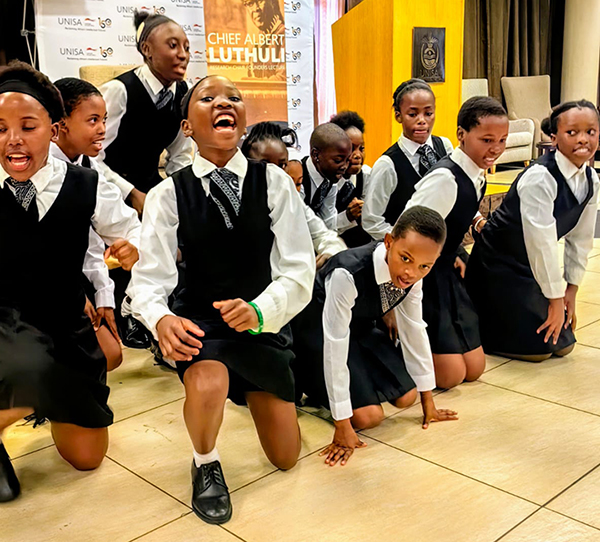
Youth from the Hope for Girls Foundation honoured Dr Magona with recitals
A critical character in Mangona’s book is a little girl called Mandlakazi. Mandlakazi's character embodies the significance of our ancestors and the diverse gifts of African spirituality. She inspires the people around her to radiate confidence regardless of their physical impairments. Magona demonstrates how providing children with opportunities to dream will enhance their ability to thrive and reach their full potential. It should be a collective responsibility; thus, we ought to be open to challenging the status quo. The Hope for Girls Foundation from Daveyton attended the event, and recited some of Magona's poems in her honour.
* Article by the Chief Albert Luthuli Research Chair
Publish date: 2024-04-15 00:00:00.0

 Unisa shows that developing countries are equal partners in research management and administration capacity development
Unisa shows that developing countries are equal partners in research management and administration capacity development
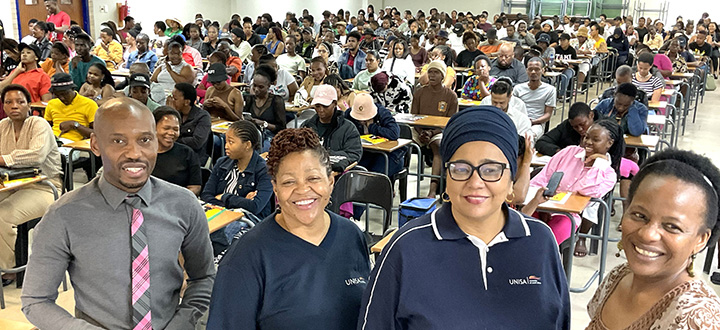 Unisa KZN Career Fair bridges the gap between students and employers
Unisa KZN Career Fair bridges the gap between students and employers
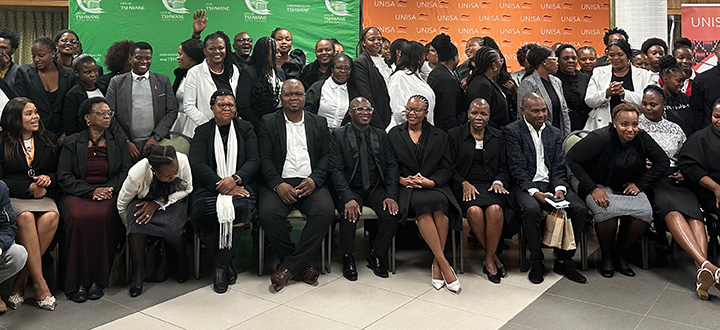 Unisa academics join hands to celebrate World Social Work Day
Unisa academics join hands to celebrate World Social Work Day
 Unisa community engagement initiative targets school underperformance
Unisa community engagement initiative targets school underperformance
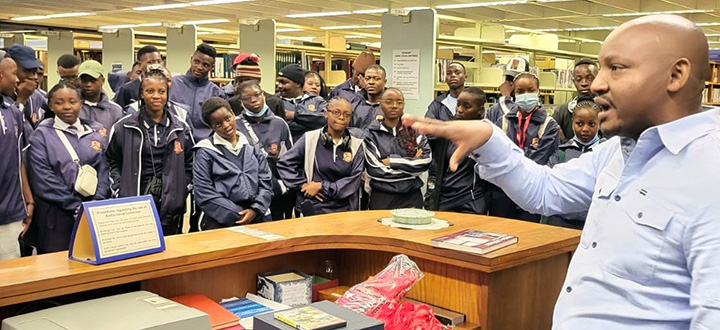 Library tour introduces learners to the wonderful world of Unisa
Library tour introduces learners to the wonderful world of Unisa